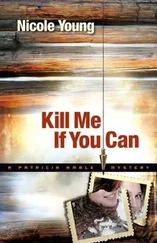I was kept six days in Montpellier, during which time several lawyers appeared to offer their services. I selected a middle-aged man whose mannerisms and appearance reminded me of Armand, although he frankly stated he didn’t think he could win me my freedom. “I have gone over all the police documents, and they have you dead to rights,” he commented. “The best we can hope for is a light sentence.”
I told him I’d settle for that.
Scarcely a week after my arrest, to my astonishment, I was removed to Perpignan and the day after my arrival there I was brought to trial in a court of assizes, made up of a judge, two assessors (prosecutors) and nine citizen jurors, all of whom would jointly decide my guilt or innocence.
It wasn’t much of a trial, really, lasting less than two days. Gaston listed the charges against me and the evidence he’d gathered to support the accusations. There were ample witnesses available to appear against me.
“How does the defendant plead?” inquired the judge of my attorney.
“My client will offer no defense against these charges,” replied the lawyer. “In the interest of time, we would like to sum up our position now.”
He then launched into an eloquent and impassioned plea for leniency in my behalf. He cited my youth-I was still not twenty-one-and portrayed me as an unfortunate and confused young man, the product of a broken home “and still more of a delinquent than a criminal.” He pointed out that a dozen other European nations where I had perpetrated similar crimes had placed formal demands for extradition, once my debt to France was paid.
“This young man will, in all probability, never see his native land for many, many years, and even when he does return home, he will return in chains and only to face prison there,” argued the lawyer. “I need not point out to this court the harshness of the prison life this young man will have to endure here. I ask the court to take that into account in setting a penalty.”
I was adjudged guilty. But at the time I thought jubilantly that my attorney, if he’d lost a battle, had won the war. The judge sentenced me to only one year in prison.
I was remanded to Perpignan ’s prison, the “House of Arrest,” a gloomy, forbidding stone fortress constructed in the seventeenth century, and not until I had been there for a few days did I realize just how lenient the judge had been.
I was received by two guards who brusquely ordered me to strip and who then escorted me, still naked, to an upper floor where I was marched down a narrow corridor devoid of cells as such. On either side were only stone walls set with solid steel doors. The guards halted before one of the metal portals and one unlocked and opened the door. It screeched open with a sound reminiscent of a horror movie, and the other guard shoved me inside the dark cubicle. I stumbled and fell forward, striking my head against the back of the cell, for the cell was a sunken one. I had not noted the two steps leading to the floor. I was never actually to see the steps.
I was in total darkness. A damp, chilling, breath-stifling, frightening darkness. I stood up to grope around for the light switch and cracked my head against the steel ceiling.
There was no light switch. There was no light in the cell. There was, in fact, nothing in the cell but a bucket. No bed, no toilet, no wash basin, no drain, nothing. Just the bucket. The cell was not a cell, actually, it was a hole, a raised dungeon perhaps five feet wide, five feet high and five feet deep, with a ceiling and door of steel and a floor and walls of stone. The ceiling and door were chill to the touch. The walls wept chilly tears constantly.
I waited for my eyes to adjust to the darkness. No light filtered into the cell from any source. There were no cracks in the overhead or walls. The ancient door to my steel and stone box seemed to blend itself into its aperture like a hermetic seal. My eyes did not adjust. The eyes do not adjust to total darkness.
There was air entering the cell. Periodically a cold draft explored my skin like clammy fingers, raising goose bumps as much from the eerie sensation as from the chill. I wondered whence it came. Whatever its channels, they also were dark.
I slumped on the floor, shivering and feeling like I’d been entombed alive. Panic added to my shaking. I sought to calm myself by rationalizing my situation. Surely, I told myself, this was not to be the cell I would occupy during the entire year. Probably I was in here for observation. I discarded the theory immediately. Anyone observing me in this cell would have to have X-ray eyes. All right, then, I was being given a taste of what could happen to me if I misbehaved. I clung to the second supposition. Yes, this treatment was calculated to ensure my good behavior once I was released among the general prison population. After all, only unruly prisoners were confined in solitary under such harsh conditions, weren’t they? Certainly no civilized country would permit such cruel and inhumane punishment to be meted out by its prison warders without cause.
France does. Or did.
I was not fed my first day in Perpignan ’s prison. I had been placed in my grim cell late in the afternoon. Several hours later, exhausted, cold, hungry, bewildered, frightened and desolate, I laid down on the hard floor and fell asleep. I slept curled in a ball, for I am six feet tall.
The screeching of the door awakened me. I sat up, wincing from the soreness and cramps caused by my uncomfortable sleeping position. The dim form of a guard loomed in the doorway. He was placing something on the steps inside my crypt. I was galvanized into action as he straightened and started to close the door.
“Wait! Wait!” I shouted, scrambling forward and placing my hands against the inside of the door, trying to restrain its closing.
“Why am I being kept in here? How long will I stay in here?”
“Until you have completed your sentence,” he said, and shoved shut the door. The words clanked on my ears with the metallic finalness of the door slamming against the stone jamb.
I fell back, stunned by the ghastly truth. A year? I was to live in this black coffin a year? Without light? Without bedding? Without clothing? Without toilet facilities? And without God knows what else? It was impossible, I told myself. No man could live in such a dark void, under such conditions, for a year. He would die, and his death would be slow and torturous. It would have been better had I been sentenced to the guillotine. I loved France. But what kind of country was it that countenanced such punishment for such a crime as mine? And if the government was ignorant of such prison conditions, the people unknowing, what manner of men were the French penologists, into whose hands I had been delivered? Depraved monsters, madmen, perverts, undoubtedly.
I was suddenly scared, actually fearful. I did not know how, or if, I could survive a year in this Stygian vault. I still have nightmares from my stay in Perpignan ’s House of Arrest. Compared to Perpignan prison, the Black Hole of Calcutta was a health spa, Devil’s Island a vacation paradise.
I had not expected prison life to be easy. My one experience behind bars, and then for only a few hours, had convinced me that jails and prisons were not nice places to reside. But nothing I had ever read, heard or seen had ever indicated that imprisonment could be as brutal and heartless as this.
I felt around and located the food the guard had broughc. It was a quart container of water and a small loaf of bread. The simple breakfast had not even been brought on a tray. The guard had simply set the container of water on the top step and had dropped the bread beside it on the stone. No matter, I wolfed down the loaf of bread and gulped down the water in one swig. Then I huddled miserably against the wet granite wall and contemplated the machinations of French Justice.
Читать дальше











